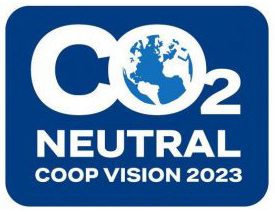Retailer Co-op Switzerland is aiming to be completely CO2 neutral by 2023, with a mixture of reduced consumption, green energy sourcing and offsetting schemes.
Since making its carbon pledge in 2008, Switzerland’s second largest retailer has succeeded in reducing its annual CO2 emissions by 24.8%.

It now plans to reduce its total annual energy consumption by 20% by 2023. And it aims to increase the proportion of electricity taken from renewable sources to 80%.
The retailer expects these measures will result in a reduction of around 50% on absolute annual CO2 emissions, compared with 2008 levels. The remaining CO2 emissions will be offset from 2023 onwards.
To achieve its this, Co-op Switzerland is focusing on three main areas: stores, transport and production facilities.
In terms of stores, the retailer is implementing the Minergie low-energy standards in all its new and refurbished buildings, using LED technology and CO2 as a refrigerant. Minergie is a registered quality label for low energy consumption buildings. The group has been working with natural refrigerators since the mid 2000s to achieve its CO2 target.
Around 400 of Coop’s 850 supermarkets use CO2 as the sole refrigerant, which consumes a quarter less electricity than conventional systems. From 2016 the retailer has been working with the Climate Protection and CO2 Compensation Foundation, receiving advice and funding to support the change to CO2 refrigeration systems. These efforts brought recognition, with the co-op being evaluated as a Green Cooling Leader in the Chilling Facts report by the Environmental Investigation Agency (EIA). Ammonia is also used as a refrigerant in some of its facilities.
In addition, the co-op transports goods by rail wherever possible. Its lorries use environmentally friendly fuels such as biodiesel, biogas and electricity from renewable energy sources. Furthermore, in its production facilities, Co-op Switzerland uses the resulting waste heat and cold from the production facilities.
Using renewable energy is another important element of the retailer’s approach. The co-op is exploiting renewable energy sources through the use of wood-chip heating, heat pumps and district heating, and supporting the use of biogas plants and photovoltaics.
Across its supply chains Co-op Swiss is working on increasing energy efficiency. An example could be the production of its Naturaline textiles, which has been completely CO2 neutral since 2013. Its own-label brand Oecoplan offers a range of energy-efficient appliances with the Topten quality seal for most energy-efficient appliances. Co-op Switzerland is also the country’s first retailer to label products that have been transported by air and offset the resulting CO2 emissions with climate-protection projects.
The co-op is a Climate Partner of World Wide Fund (WWF), a conservation organisation raise customers’ awareness of sustainable consumption, developing various projects in areas such as sustainable fish, responsible cultivation of palm oil and soybeans, environmentally sound forestry for the extraction of wood and paper
The retailer has 2, 476 outlets and stores and reported sales of CHF 28.3bn (£22.59bn) in 2016.

